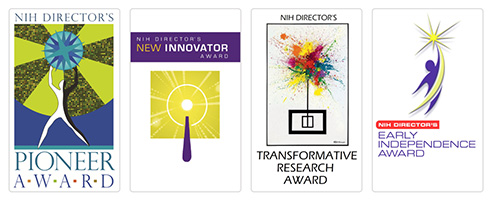
The 2025 NIH Director’s Awards support exceptionally creative scientists with the potential to transform biomedical and behavioral science.
The National Institutes of Health’s High-Risk, High-Reward Research program awarded 56 new research grants to support highly innovative scientists who proposed transformative, pioneering, and broadly impactful behavioral and biomedical research projects. NIH-supported research projects include development of light-activated cell treatments to help treat obesity; discovering how nerve cells connect to different organs to better understand body function and disease; identifying genetic diseases that could be treated with high-dose vitamins; engineering a gel that can trigger hair growth in human skin to prevent and treat skin scars; and building non-invasive devices to help people with paralysis perform complex and everyday activities. The 56 awards (totaling approximately $179.1 million) are supported by the NIH Common Fund, as well as two other institutes and offices across NIH, beginning in 2025 for five years, pending the availability of funds.
The High-Risk, High-Reward Research program supports investigators at each career stage who propose innovative research that, due to its inherent risk, may struggle in the traditional NIH peer-review process. Investigators seeking program support are encouraged to think beyond traditional bounds and to pursue revolutionary ideas in any area of research relevant to NIH’s mission to advance knowledge and enhance health.
The NIH Common Fund oversees programs that pursue major opportunities and gaps in biomedical research that require NIH-wide collaboration to succeed. Among these initiatives, the High-Risk, High-Reward Research program makes awards in four categories, including two awards specifically for researchers in the early stages of their careers. These four awards are:
- The NIH Director’s Pioneer Award, established in 2004, challenges investigators at all career levels to pursue new research directions and develop groundbreaking, high-impact approaches to a broad area of biomedical, behavioral, or social science.
- The NIH Director’s New Innovator Award, established in 2007, supports unusually innovative research from early career investigators who are within 10 years of their final degree or clinical residency and have not yet received an NIH R01 or equivalent grant.
- The NIH Director’s Transformative Research Award, established in 2009, promotes cross-cutting, interdisciplinary approaches and supports individuals and teams of investigators who propose research that could potentially create new, or challenge existing, paradigms.
- The NIH Director’s Early Independence Award, established in 2011, provides an opportunity to support exceptional junior scientists who have recently received their doctoral degree or completed their medical residency to skip traditional post-doctoral training and move immediately into independent research positions.
NIH issued 8 Pioneer awards, 29 New Innovator awards, 6 Transformative Research awards, and 13 Early Independence awards in 2025. Funding for the awards comes from the NIH Common Fund, the National Institute of Mental Health (NIMH), and the Office of Dietary Supplements (ODS).



